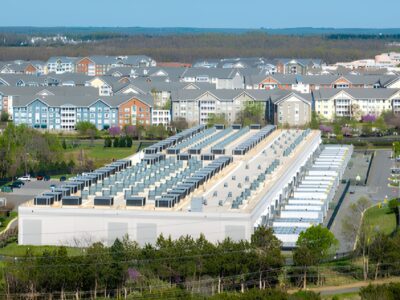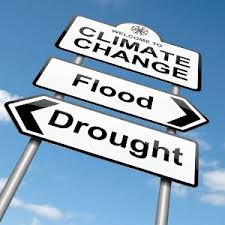The Assault on NEPA: A Threat Assessment
NEPA is under multiple attacks. Which are the most serious?
After spending decades in the shadows, NEPA – the statute governing environmental impact statements — has become a hot topic. And not in a good way: it is under concerted assault from Congress, the White House, and the Supreme Court. As we will see, the Supreme Court’s recent decision in the Seven County Infrastructure Case is probably the biggest problem. Notably, the debate over NEPA has taken place without much hard data about its effectiveness or costs, so ...
CONTINUE READINGCan Residential Electrification Support Energy Affordability?
New UCLA report illustrates potential savings across household types and energy upgrade scenarios, write guest contributors Rachel Sheinberg and Lauren Dunlap.
As the L.A. City Council considers repealing the city’s All-Electric Building Ordinance, reacting to the 2023 decision in California Restaurant Association v. Berkeley, new UCLA research suggests that electric buildings can save LA households hundreds of dollars each year on energy bills. Over the past decade, Los Angeles city leadership has put forth a suite of ambitious climate mitigation goals. Among these are decarbonization of the city's electrical grid, bu...
CONTINUE READINGChina is Kicking Our Ass at Our Own Game
The Drain is a weekly roundup of environmental and climate news from Legal Planet.
The first time I saw a Chinese-made EV on the road I was walking on a crowded sidewalk in São Paulo. It was a Saturday night this May, when the whole city seemed to be out enjoying the warm weather. A street rave took over an entire block so to keep moving, we pedestrians had to squeeze past street vendors and weave through cars that were idling in driveways. That’s why I was close enough to the car’s bumper that I could make out the “Build Your Dreams” logo...
CONTINUE READINGLegal Planet Goes Hollywood — Sort Of
Trump's "War On Cities" gets a media hit
A couple of months ago, I wrote this post about the Trump Administration's war on cities, a move that resembles fascist regimes and thinkers through much of the 20th century. Much to my surprise, I got a call on Friday from a producer at the "Velshi" show on MSNBC to talk about it on Sunday morning. So I did. It was 7 am Pacific time and I was fasting for the Jewish observance of Tisha B'Av, but made it through okay. Here it is, if you're interested: ...
CONTINUE READINGData Center Permitting: A Roadmap
AI is fueling a surge in data center construction. Here’s what you need to know.
The Department of Energy estimates that power use by data centers could be three times as high in 2030 as it was in 2023. The reason is AI, which is fueling a big buildout of new data and computing centers. These facilities will require permits, as a new White House report on AI acknowledges. This wave of new facilities is going to be a jolt to the permitting system, depending on the source of the power. Here’s what you need to know about that. Below, you’ll...
CONTINUE READINGCan States Rebuild the Barn?
Multistate compacts might be a critical way to help replace lost federal capacity - but we need more details.
A couple of weeks ago I asked how we can stand up institutions in light of the Trump Administration’s destruction of environmental agencies. As House Speaker Sam Rayburn famously said: "any jackass can kick a barn down. It takes a carpenter to build one." And not a moment too soon. EPA Administrator Lee Zeldin has eliminated the Agency’s Office of Research and Development – in place since the Nixon Administration – and Russ Vought’s chainsaw is wreaking ...
CONTINUE READINGThe Animal Agriculture Industry Undermines Climate Action
Guest Contributor Alexander Wood, a UCLA Law student, writes that lessons learned from Big Oil can be applied to animal agriculture.
The case for decarbonization to address climate change is often, understandably, directed toward the fossil fuel industry. Public opinion toward the oil and gas industry has shifted in recent years, driven in part by public protests and litigation. Why hasn’t there been more movement against greenhouse gas emissions caused by animal agriculture? Emissions from Animal Agriculture It’s not for lack of research. The international scientific community has long know...
CONTINUE READINGListing Trump’s Environment and Energy Executive Orders
I’m counting 35 so far. But I wouldn’t be shocked to learn that I’d missed something.
What’s the collective noun for executive orders? (Like a group of cows is a "herd of cows"). Is a group of executive orders a “cacophony of orders”? An “odiousness”? Or maybe a “pomposity of orders”? Whatever the right terms might be, we’ve certainly had those from Trump. It’s hard to keep track of even the orders dealing with a single issue-area such as the environment. For that reason, I’ve put together a list of all the orders that I could i...
CONTINUE READINGWhy Repeal the Endangerment Finding?
The aims may be overturning Mass v. EPA and avoiding new rulemakings.
Much will be said about the weakness of the various justifications EPA and the Department of Energy offered yesterday about why greenhouse gases do not endanger public health and welfare under the Clean Air Act. Those justifications are, indeed, remarkably weak. For example, DOE's argument that economic damages appear to be lower than economists estimate is a slap in the face to the families of the more than 130 people who died in last month's horrific, 1000-year flo...
CONTINUE READINGStates Become “Norm Sustainers” on Environmental Justice
Guest Contributor Sharmila L. Murthy explains how state Attorneys General are acting as important counterweights to the federal government on environmental justice.
Guest contributor Sharmila L. Murthy is a Professor of Law and Public Policy at Northeastern University In the wake of misleading and inaccurate characterizations by the Trump Administration that wrongly label environmental justice activities as illegal discrimination, the Attorneys General of California, Massachusetts, and New York, joined by the Attorneys General of Arizona, Connecticut, Delaware, Hawaii, Illinois, Maryland, Minnesota, Oregon, Rhod...
CONTINUE READING











